Unpleasant smell when turning on the air conditioner: reasons, what to do
The appearance of an odor when the air conditioner is turned on is an exceptional situation.The air cooling system itself, the layout of pipes and heat exchangers, and the drain are designed so that the workspace is ventilated and dried. Odors appear if there are violations in the installation and maintenance of equipment.
The content of the article:
The main causes of unpleasant odor from the air conditioner and how to eliminate it
Air conditioner It works on the same principle as a regular household refrigerator in the kitchen. Without cleaning and cleaning the space inside the refrigerator, an unpleasant odor will quickly appear. Even if there is an automatic defrosting system. Therefore, it is not surprising that an air conditioner without cleaning, left to its own devices, will emit unpleasant “odors” into the air when turned on.
Reasons for an unpleasant odor from the air conditioner:
- Reproduction of microalgae and bacteria in a humid environment, including in a container for collecting condensate, often in tubes, sometimes even in winter on the warm surfaces of heat exchangers.
- The natural process of bacteria processing home and street dust collected on air filter meshes indoors.
- Evaporation of preservatives.
In some cases, the source of the chemical smell when turned on may be the air conditioner itself.
You need to pay attention to it first. If the elimination of foul-smelling substances, clearly of biological origin, requires simple cleaning and sanitization, then with an air conditioner the situation is more complicated. A pungent chemical or plastic smell may indicate an impending split system failure.
Smell of plastic
Always appears after installing and turning on a new air conditioner. The appearance of “chemistry” in the air is explained by the evaporation of preservative coatings and adhesive residues from tape. When turned on, the fan expels factory dust that has settled inside the air ducts. Such odors do not last long and disappear within an hour and a half after turning on the air conditioner.
The second type of odors is more unpleasant. It appears when the heat exchangers, compressor housing, contacts and wiring heat up. The smell, as a rule, is not very pleasant - slightly burnt plastic or chlorine (whiteness).
According to the instructions, all foul-smelling substances from plastic, metal and oil should evaporate within a couple of hours after switching on. That's usually how it goes.
It will be worse if the situation repeats itself a few months after installing the air conditioner.
If, after turning it on, a sharp, burnt smell of chlorine or melted plastic appears, then you need to turn off the split system and understand the reasons. Because that's what burnt wiring smells like. It is necessary to find and eliminate the cause so that the device connected to the network does not burn out when turned on again.
New filters and screens can smell unpleasant, especially inexpensive ones, without markings or indication of the manufacturer or country of manufacture. It's the smell of the plastic itself.
Many air conditioner owners prefer to buy several new filters instead of cleaning and washing the old one. After turning on the air conditioner, the room smells of chemicals only for the first few minutes, then everything disappears. The smell will finally disappear in a month, but by then the filter usually needs to be cleaned or replaced.
Healthy: Why can't you open the windows when the air conditioner is on?
Damp smell
The unpleasant, heavy smell of standing water appears mainly in spring or autumn, less often in summer, in rainy weather. Sometimes it smells damp when the split system is turned on for heating.
The cause of the smell is a malfunction of the condensate collection and disposal system. Most air conditioners have a whole system of sensors and even a water pump. The condensate falling on the cold heat exchanger is collected in a container.
As soon as its quantity exceeds the level in the tank, the automation turns on the pump. In hot weather, the water simply evaporates or drains by gravity through a special tube. It happens that in hot weather the electronics do not turn on the pump for a long time. It is clear that the mechanism sours, condensation spills over the pan, all this is sucked in by the fan, as a result, the air flow from the air conditioner smells of dampness and street dust.
Sometimes water vapor saturates the fabric insulation of cold pipes and remains there until it is time to turn on the air conditioner to heat the room. The bad smell gets stronger, but usually disappears for a long time.
Another source of odor is rainwater. According to the instructions, when installing the outdoor unit of the air conditioner, it is prohibited to install protective canopies over the refrigeration unit. Water gets inside the outdoor unit and is expelled by a fan within a day or two.
During this period of time, the air may smell damp and rainy. It’s worse if the air conditioner is hidden in the shade of trees or under a canopy. In the absence of solar heat, water leaves the outdoor unit longer, and the smell of dampness when the split system is turned on lasts 3-4 days. In addition, the metal parts of the frame rust, even if they are painted.
Sewage smell
According to reviews from most air conditioner owners, the rotten stench of swamp water is the most annoying. Moreover, it is more difficult to remove the source, even when the device is periodically turned on for heating.
Causes:
- the condensate removal system does not work;
- microalgae and bacteria have multiplied in the container and pipes;
- microflora that produces a rotten sewer smell has entered the indoor unit onto the filter or heat exchanger insulation.
A rotten smell from an air conditioner is the result of the death of microorganisms.
They develop quickly in warm water, but the supply of nutrients is limited. And when you turn on the air conditioner, heating appears on the one hand, and cooling on the other. Microflora dies en masse, bacteria convert plant matter into methane, carbon dioxide and solid residue. Methane is what smells bad. The gas evaporates, and the solid residue clogs the condensate removal system.
Where can microorganisms get into the air conditioner? Most often, microflora is carried by birds, dust, and falls with rain on the external unit of the air conditioner. Typically, rainwater does not bloom with microalgae if there is no contact with the ground. Birds carry pieces of soil. If turning on the air conditioner is rare, then birds often use the outdoor unit for bird gatherings.
The internal filter smells
Oddly enough, the source of the smell when turned on may be the fabric mesh filter on the internal unit of the split system. Moreover, the amount of foul-smelling vapors can be much greater than from water with dead microalgae. The smell of rotten sewer can be felt even without turning on the air conditioner.
The source of the stench is house dust, regularly collected by the internal filter mesh.
Almost all air conditioner models are equipped with an air recirculation mode. The air in the room is cooled without taking in additional air flow from the street. It is clear that most of the finest house dust settles on the filter mesh.
When the air conditioner is turned on, the air blowing on the cold heat exchanger covered with condensate picks up moisture and transfers it to the filter. From this moment on, the dust sticks to the mesh, and often whole dust “mountains” grow on the filter.
This does not mean that split systems cannot be turned on in recirculation mode. With any setting, the system always captures part of the air from inside the room.
For example, the “HITACHI RAS10JH4” model, when turned on in standard mode, passes 510 m per hour3, of which only 30 m is taken from the street3, the rest is from inside the room.
Approximately 20% of the finest dust is microscopic dead flakes of the skin of people living in an apartment or house. It turns out that humans generate a huge amount of organic dust, and a significant part of it rises into the air. Once on the filter, such material gets wet and gradually decomposes, releasing a stench.
Fungus
This is a pathogenic organism that develops in a humid environment. Can survive on concrete, stone, plaster. Affects wood and organic matter. Carried by spores. The fungus can settle in a moist, cool environment, as long as nutrients and minerals are available.
The fungus can only appear in a nutrient medium, mainly soil, damp soil. Therefore, if the air conditioner is regularly serviced and sanitized, then there will be no pathogen.
The possible appearance of fungus should be taken seriously.It does not have a characteristic odor, so it will not smell bad when the air conditioner is turned on.
How to avoid odors from your air conditioner
There are several ways to prevent unpleasant odors.
It is advisable to purchase an air conditioner with built-in protection against the development of pathogenic microflora. Not just with an antimicrobial filter installed. This is clearly not enough; after several starts, the protective coating will become covered with a thick layer of dust, and its effectiveness will be reduced to zero.
You need to choose models with a regular filter, plus an ultraviolet lamp and an ionizer.
To eliminate unpleasant odors, regularly sanitize both the indoor unit and the condensate removal system.
Buy several replacement filters and change them as needed. The removed filter mesh is treated with an antiseptic, washed in hot water, and dried to ensure high-quality dust removal. This method is more reliable than cleaning the filter directly on the block. Moreover, in such conditions, cleaning and treating the mesh efficiently is not easy and is not always effective.
Finding out the cause of the smell when you turn on the air conditioner is not difficult. If you do not skip split maintenance and use antiseptics, then there will be no problems with odor at all.
Tell us about your experience in dealing with unpleasant odors. What products did you use to combat dust and germs?

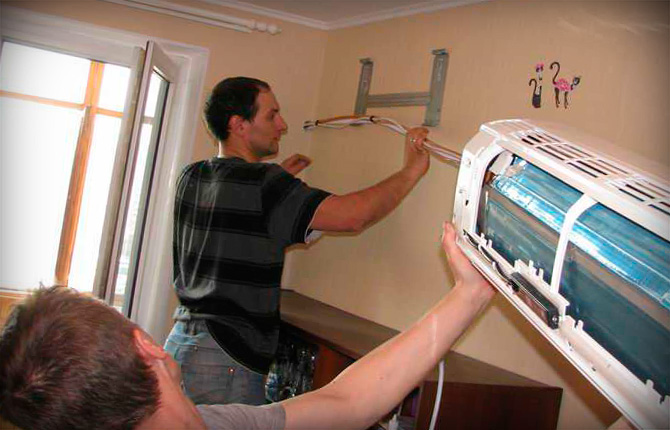
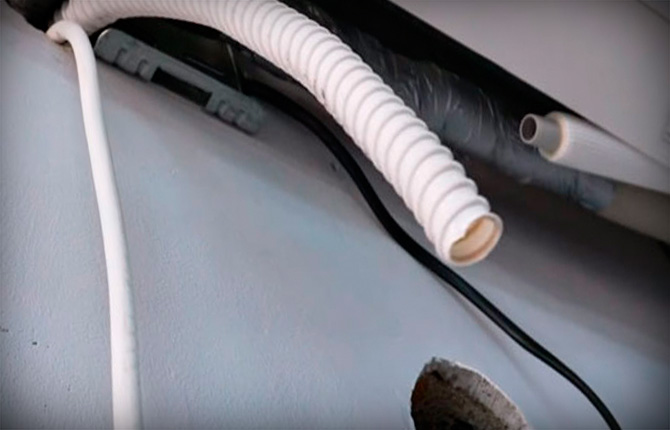
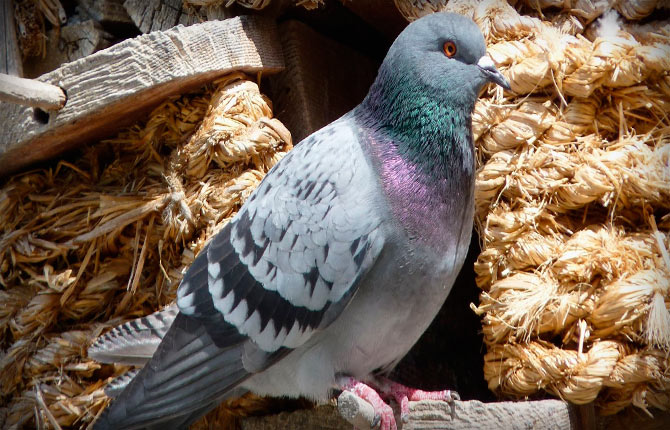
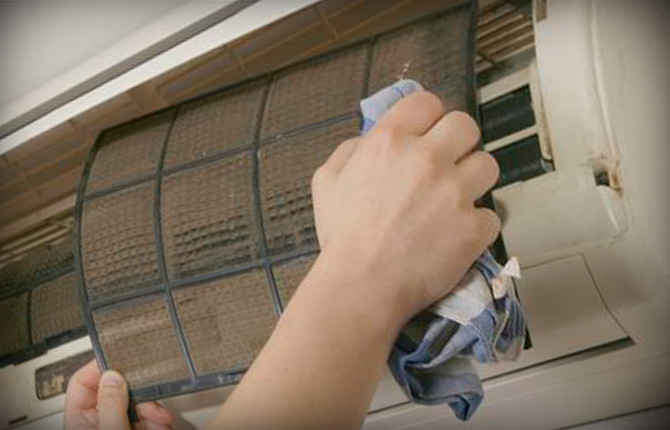
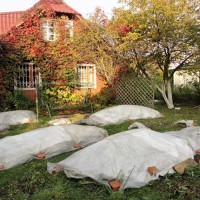


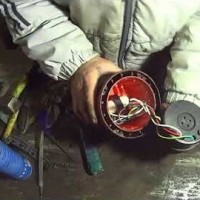
You need to clean it constantly, if the smell of rotten fish appears, and this happens, then even wiping with alcohol does not help. Once I had to change the channel insulation winding. So everything was saturated with the smell.
Once upon a time, an open bottle of hydrogen peroxide was placed inside. I don’t know if it helped, but there was no smell.Modern means are all chemicals, you spray the air conditioner a couple of times, turn it on, and all the employees in the office walk around like they’re drunk.